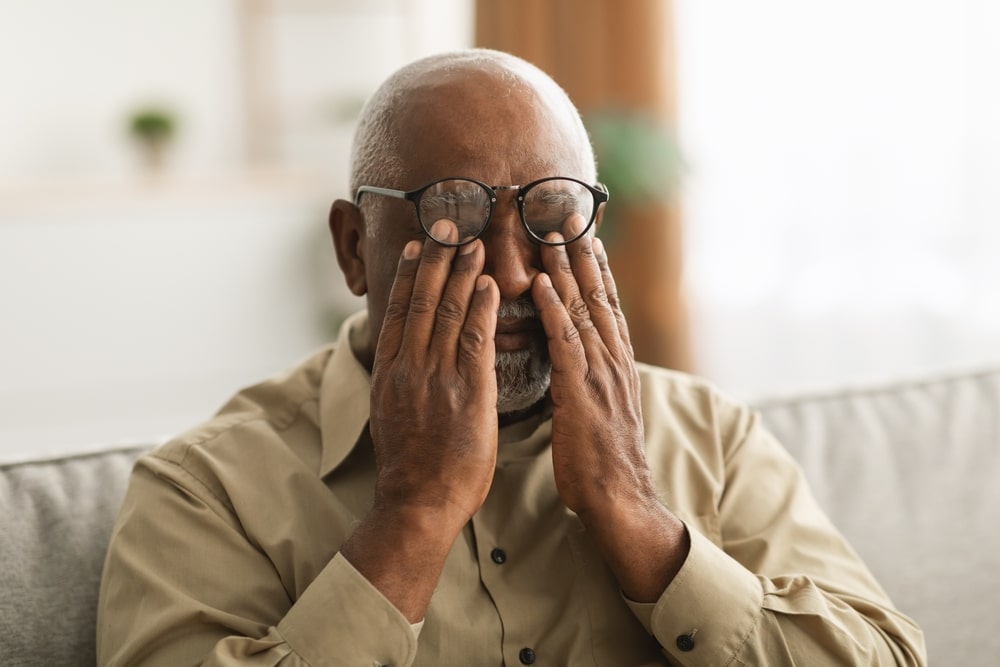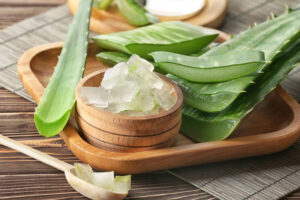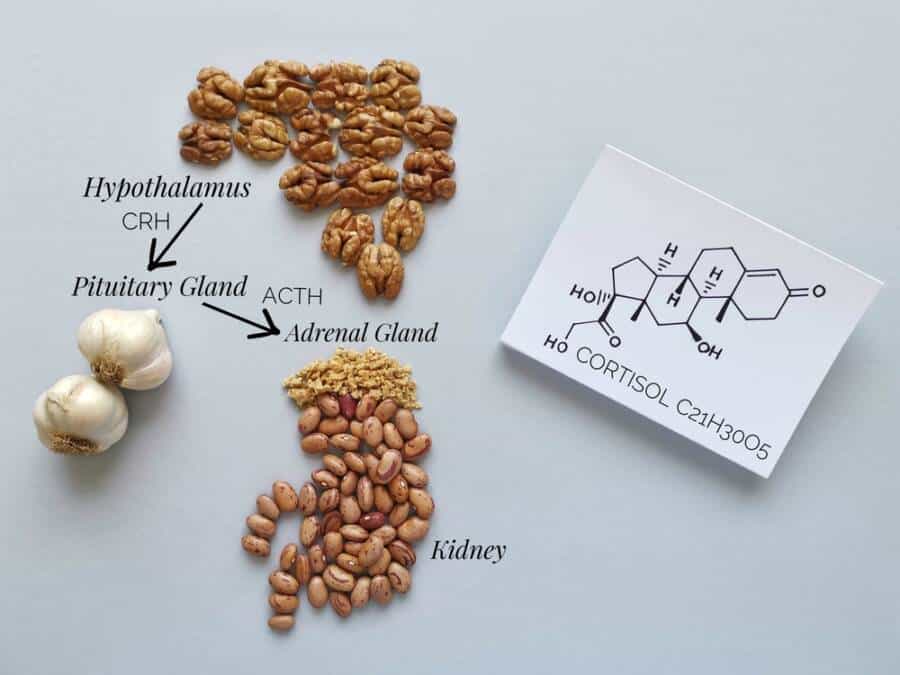Which are some of the craziest hygiene myths you’ve heard?
It’s no secret that personal hygiene is essential to overall health and wellness. As your body comes into contact with plenty of germs and bacteria every day, maintaining good cleanliness and washing habits, such as washing your hands and bathing, helps lower your risk of infection and illness. It’s also good for your mental health as well—practicing proper body hygiene can help you feel more confident in yourself and boost your overall self-esteem.
However, while the benefits of personal hygiene are obvious, defining these practices isn’t always straightforward. We all have different ideas of good hygiene, and many people follow very different washing and self-care routines. Between regular media coverage of celebrities’ morning regimens and constant ads for hygienic products, it can be difficult to know if you’re doing things right.
Many hygiene myths are going around, and most people believe and practice at least one of them. Misinformation concerning personal hygiene habits abounds, so we’ve decided to separate fact from fiction. Here are some of the most common hygiene myths you shouldn’t fall for!
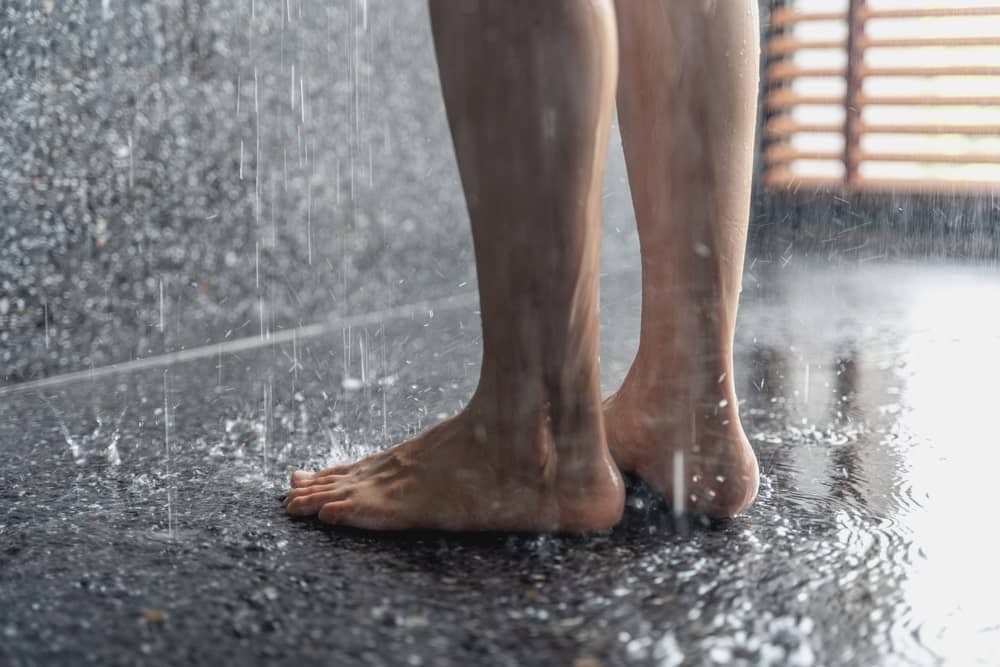
1. You don’t need to wash your legs in the shower
We don’t know when this myth came around, but some people think they don’t have to wash their legs in the shower. The reason for that is that, as you’re washing the top part of your body, the soapy run-off water does a very good job of keeping your legs clean. This is one of the most common hygiene myths going around.
According to doctors, in general, it’s important to wash your legs in the shower, particularly if they’re visible and dirty. However, over-washing your legs, just like with any other part of your body, can strip the skin of essential oils and lead to inflammation and skin barrier disruption. So, a gentle lather and rinse isn’t likely to harm, so wash your legs in the shower!
2. Peeing in the shower is harmless
Peeing in the shower may be something you do without giving it much thought. Thinking that this is OK is one of the hygiene myths that experts hope will disappear. Maybe you do this but wonder whether it’s actually harmless. Perhaps it’s something you’d never consider doing.
While no published research shows peeing in the shower isn’t an OK thing to do, dermatologists agree that it’s not recommended and classify it among hygiene myths that you shouldn’t believe. There’s a theoretical risk of a bacterial infection if there’s an open cut on your skin and bacteria in your urine.
Moreover, experts point out that urine isn’t sterile. It can contain many different types of bacteria, including Streptococcus and Staphylococcus, which are linked to strep throat and staph infections, respectively. However, it’s important to note that bacteria counts are relatively low in healthy urine, but they may be much higher if you’re dealing with a urinary tract infection.
There’s one more thing worth mentioning here: you don’t need a medical degree to figure out that other people probably don’t want to shower in a place where your urine was.
In other words, add this one to the list of hygiene myths you shouldn’t fall for.
3. Brushing your teeth in the shower is the same as using the sink
The primary concern about brushing your teeth in the shower comes down to hygiene. We scrape off the grime from the day in our showers—should we really be brushing there? Proponents of the practice say that it saves time and that it’s more efficient.
Keeping a toothbrush in the shower for emergencies might seem like a time-saving option. However, brushing your teeth in the shower being the same as using the sink is among the hygiene myths that you shouldn’t believe. The shower is a moist place where bacterial overgrowth can occur. Your toothbrush, like scrubbers, loofahs, and washcloths, runs the risk of coming into contact with the bacteria in your shower. By the way, it’s important to clean your toothbrush holder regularly; if you want to buy a new one, here are some options from Amazon.
If you’re going to brush your teeth in the shower, though, timing is key. According to experts, it’s important to do so before washing your body. This way, the cleanser or soap will help rinse away any toothpaste residue.
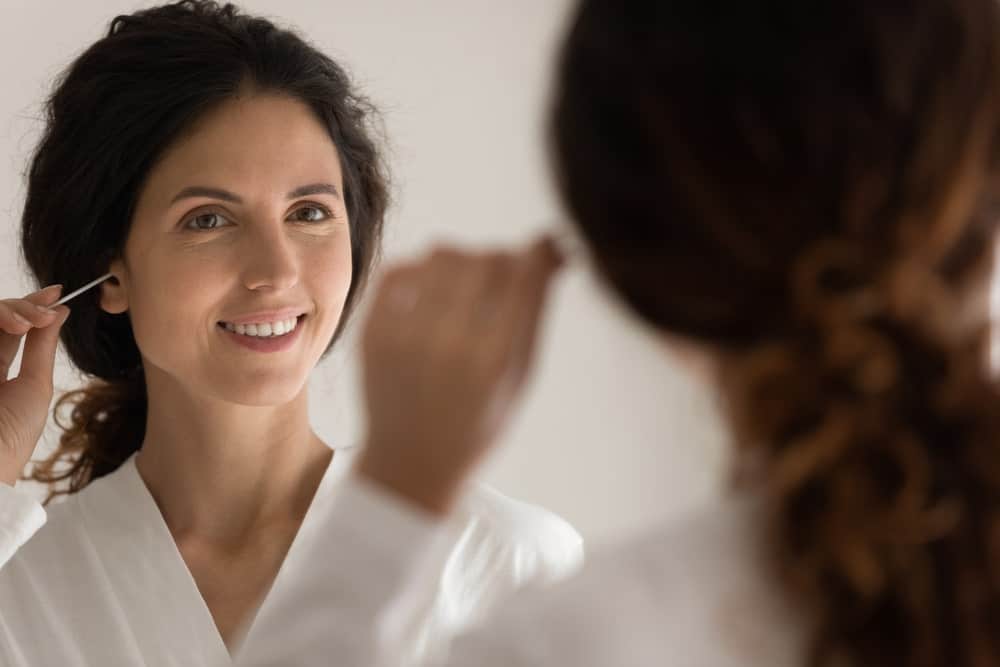
4. You need to use Q-tips to clean your ears
No. 4 on our list of hygiene myths says you need to use cotton swabs to clean your ears. Q-tips were invented in 1923, when the company’s founder, Leo Gerstenzang, saw his wife adding wads of cotton to toothpicks so she could clean out their baby’s ear. But the company no longer promotes them for hygienic purposes.
Experts confirm that the idea that you have to stick them in your ears to clean them is false. Moreover, this is one of the most common hygiene myths that can even be potentially unsafe.
The ear canal has a self-cleaning structure. While the ear is constantly shedding dead skin cells and making wax, it’s also designed with a natural migration pattern that forces any excess buildup out of the ear canal.
Furthermore, ear wax works as a moisturizer for the ear canal and has antimicrobial properties that kill bacteria before they can create an infection.
If you do insist on using Q-tips to clean your ears, be careful and gentle because they can cause damage. According to experts, the thin skin lying right on top of hard bone makes the skin pretty vulnerable to tearing if poked at with a cotton swab, hairpin, or paperclip. Small tears in your ear can lead to bleeding and painful infections.
Keep reading to discover other hygiene myths!
5. Always wash your hands with hot water
While it’s true that boiling water effectively destroys harmful bacteria, you shouldn’t use it every time you wash your hands. Thinking this is the only way you’ll get rid of germs and bacteria is just one of the hygiene myths that can do more harm than good.
There’s no scientific evidence that washing your hands with hot water is necessary to clean them. Warm water is just as effective as scalding water.
Far above temperature, the most important factor is applying soap evenly to your hands. Rub the soap into your hands for at least 20 seconds, then rinse with water to get all the dirt and soap off.
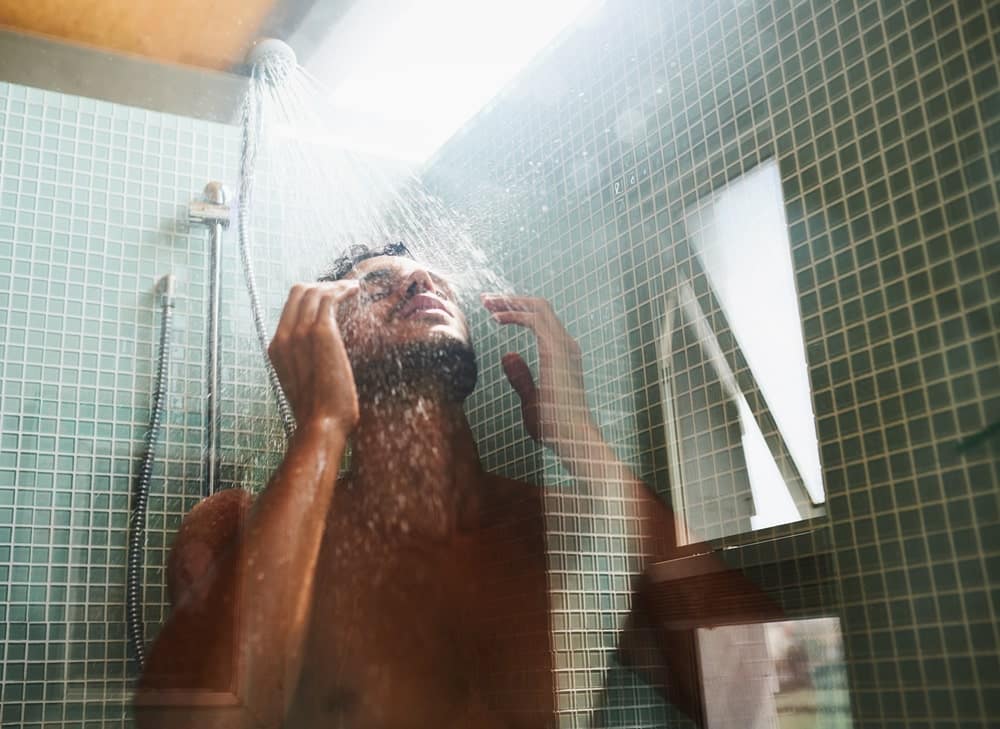
6. You need to shower every day
While there are many reasons why someone might choose to shower daily, such as a regular workout routine, help waking up in the morning, or just a personal preference, there’s no health benefit to showering every day. In fact, similar to other hygiene myths, showering too much can actually affect your skin.
Normal, healthy skin has a layer of good bacteria and natural oils that protect the skin from germs and dryness. Overwashing your body with water and soap, and especially using hot water, can strip your skin of this important layer, leaving it dry, irritated, cracked, or itchy, and at risk of infection or allergic reaction.
For people with conditions like psoriasis or eczema, this can also lead to flare-ups. Moreover, the immune system needs some interaction with bacteria, germs, and dirt on the skin to develop resistance and protective antibodies.
Conversely, bathing too little can result in body odor and a buildup of oils, dirt, and dead skin that can lead to acne, clogged pores, and other fungal and bacterial infections. While there’s no rule of thumb on how often you should bathe, showering every other day or several times a week is usually enough for most people to maintain good health.
7. The 5-Second Rule Means Food Is Safe to Eat
Last but not least on our list of common hygiene myths we should all leave behind is the 5-second rule. This rule originated in the 1200s, when Genghis Khan allegedly implemented the “Khan rule” at his banquets, according to which if food fell on the floor, it could stay there for as long as Khan allowed.
Over time, it turned into the 5-second rule, which you perhaps heard about as a kid. However, doctors point out that dropping food on the floor for even one second and then consuming it may be harmful.
Bacteria can quickly attach to food as soon as it hits the ground. The longer it stays there, the more bacteria may attach. In other words, assuming that food isn’t contaminated if picked up from the floor in five seconds is just a myth.
If you liked our article on hygiene myths, you may also want to read 10 Canned Foods You Should Avoid at All Costs.


